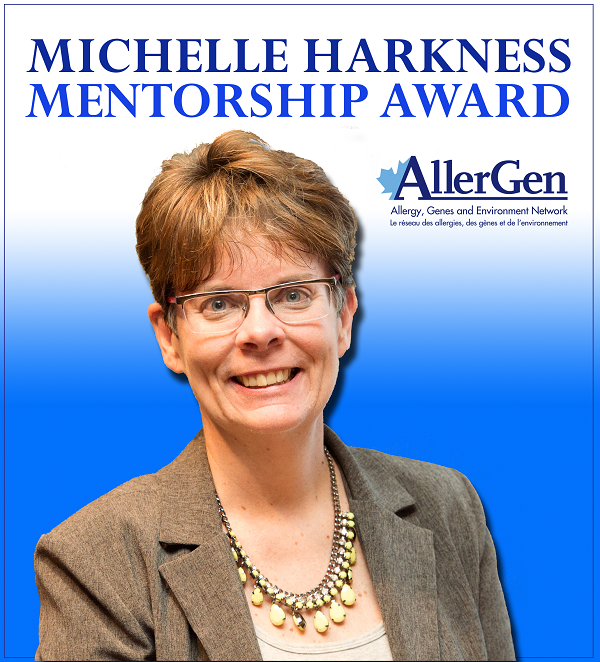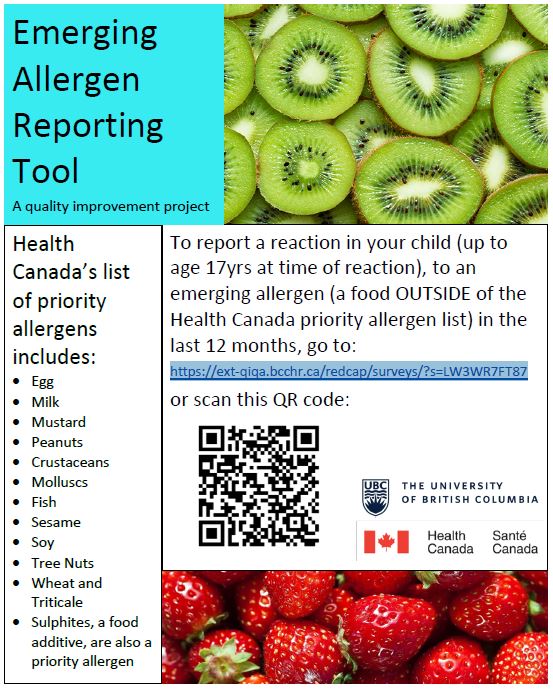Read about the new law in Alberta to better protect students with food allergy and check out what’s new in research, and how you can get involved in two studies, one measuring quality of life and another about allergic reactions. Also, check out our latest mythbuster!
Advocacy – New law in Alberta will better protect students with food allergy

Bill 201 – Protection of Students with Life-Threatening Allergies Act has become law in Alberta and will come into effect in January 2020. Thanks to all of you in Alberta who reached out to your Member of the Legislative Assembly (MLA) to help make this happen!
Find out what this new law entails.
Research: Your voice is needed: Participate in an important research study that will help to measure quality of life

Thanks to those who have already participated in this study. If you have not already participated, please take the time to do so – the study remains open and the research team is still looking for participants.
Research: Participate in a survey if your child has had a reaction due to an emerging allergen
A research team from BC is working with Health Canada on a tool for parents and allergists to report reactions to emerging allergens in children up to the age of 17 (at time of reaction). The team is led by Dr. Edmond Chan, Head of the Division of Allergy & Immunology, Department of Pediatrics at the University of British Columbia, and Clinical Investigator at BC Children’s Hospital Research Institute. Dr. Chan is also a member of our Healthcare Advisory Board.
An emerging allergen is defined as any allergen outside of Health Canada’s priority allergen list which includes egg, milk, mustard, peanut, crustaceans, molluscs, fish, sesame, soy, tree nuts, wheat and triticale. Sulphites, a food additive, are also a priority allergen.
You are invited to complete the survey if your child has had a reaction in the last 12 months to a food other than a priority allergen. Your participation will help researchers, and advocacy groups like ours, better understand emerging allergens.
Research – “Gold standard” food allergy test faces implementation barriers
A new AllerGen study by Canadian researchers shows that an oral food challenge (OFC), considered the gold standard of food allergy testing, faces several barriers preventing its widespread implementation.

“In our study, nearly 97% of the allergists surveyed agreed that there was a need to conduct more OFCs both in the hospital setting and in community practices across Canada,” says AllerGen investigator Dr. Edmond Chan, who led the research. “Among allergists, the main barriers to performing OFCs were: lack of time, since challenges may take up to four to six hours to complete, and a lack of resources, including inadequate office space and the need for trained staff to observe the patient for several hours following the challenge.”

Among parents of children with food allergy, the main barriers to participating in OFCs were fear and anxiety about a child potentially experiencing an allergic reaction during the procedure. “Parents said that before an OFC, they feared their child might experience an allergic reaction or that they might lose their child’s trust,” says first author Elaine Hsu, MPH, an AllerGen trainee and Research Coordinator at the BC Children’s Hospital.
Ensuring access to accurate, evidence-based and timely diagnosis and treatment of food allergy is one of our main priorities in the National Food Allergy Action Plan. With improved diagnosis and treatment, we can work to reduce incidence and risk of food allergy.
AllerGen NCE Inc. is a national research network dedicated to improving the quality of life of people with allergic and related immune diseases.
Call for applications: AllerGen’s Michelle Harkness Mentorship Award

AllerGen NCE Inc. is calling for applications for the Michelle Harkness Mentorship Award, created in honour of the late Michelle Harkness, AllerGen’s Manager of Highly Qualified Personnel (HQP) Training and Events from 2011 to 2017.
If you know someone working in airways and allergic disease whose commitment to mentorship has made a difference in the lives of others, celebrate that person by nominating them for the 2019-2020 Michelle Harkness Mentorship Award. Deadline for submissions is October 4, 2019.
AllerGen NCE Inc. is a national research network dedicated to improving the quality of life of people with allergic and related immune diseases
Mythbuster – Are all allergy-inducing foods required to be listed on food labels?

MYTH: All allergy-inducing ingredients must be listed on food labels.
FACT: Health Canada’s food labelling regulations require the inclusion of the common name of priority food allergens, as well as gluten sources and added sulphites, to be listed on a food label. These include: peanut, tree nuts, sesame, milk, egg, fish, crustaceans (e.g., lobster, shrimp) and molluscs (e.g., scallops, clams), soy, wheat and triticale, and mustard. While a person can be allergic to any food, these are the most common.
Bottom line: Always read food labels and “triple check.”
Learn more about priority food allergens, label reading and the importance of doing the “triple check”.
Help us educate your communities and share this Mythbuster with them!
Check out our other myths about:
- Antihistamines and asthma medications can be used to treat anaphylaxis
- Food intolerances and food allergies
- Hives are always present during an allergic reaction
- Someone who has been treated with an epinephrine auto-injector doesn’t necessarily need to go to the hospital
- Some allergies are more “severe” than others
- Eating a little allergen will increase tolerance and cure allergy
- Age requirement for allergy testing
- Cooking at high temperatures kills allergen proteins
- “May contain” allergen labelling is mandatory
- Results of skin prick tests indicate severity of allergy
- Pesticides and other chemicals can trigger allergies
- Epinephrine auto-injectors cure food allergy
- Which allergens cause life-threatening reactions
- Food allergy “cures”
- Celiac disease is the same as a wheat allergy

